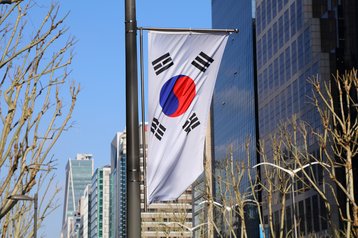The South Korean government has announced it is increasing the support package on offer to the country’s semiconductor industry from $18.2 billion to $23.3bn.
The government also said it would increase the amount of money available from a financial assistance program specifically targeted at the chip sector from $12bn to $14bn.
"The US government has postponed its plans for reciprocal tariffs for 90 days. There's anticipation that product-specific tariffs will be announced for sectors such as semiconductors or pharmaceuticals," South Korean finance minister Choi Sang-mok said during a policy meeting on Tuesday. "This is a valuable time to strengthen the competitiveness of our companies in the face of a global trade war."
The government first proposed the establishment of a domestic CHIPS Act to mitigate the potential risks from the tariffs President-elect Trump has been threatening to impose since November 2024 - Trump told reporters in February: “It’ll be 25 percent and higher, and it’ll go very substantially higher over the course of a year.”
While he has yet to enact any specific chip tariffs, over the weekend, Trump told reporters they would be announced this week.
South Korea has been financially supporting the country’s semiconductor industry since 2021, pledging at the time to spend $451bn on domestic semiconductor production over the next decade through a mixture of government support packages, tax incentives, and corporate investment pledges.
The country is home to the two largest memory chipmakers in the world, SK Hynix and Samsung Electronics. Both are also among the top ten biggest semiconductor companies globally, and Samsung is one of only two manufacturers, along with Taiwan's TSMC, capable of producing leading-edge CPUs and GPUs.
According to Reuters, government data said chips made up 21 percent – around $141.9bn – of total exports for South Korea in 2024.
Earlier this week, local media reported that the South Korean government approved Samsung Electronics’ request to extend the working hours of employees at its chip division from the legal maximum of 52 hours a week.
The Ministry of Employment has reportedly granted the company an exemption that would allow Samsung to make employees work up to 64 hours per week in the first three months and then up to 60 hours per week for the next three. Other chip companies in South Korea are now preparing to ask for similar exemptions from the law, the country’s labor minister said.
In 2024, Samsung Electronics suffered a summer of strikes at its facilities in South Korea and Sriperumbudur, near the city of Chennai, India, with workers in both regions engaging in strike action to demand higher wages and improved working hours.







